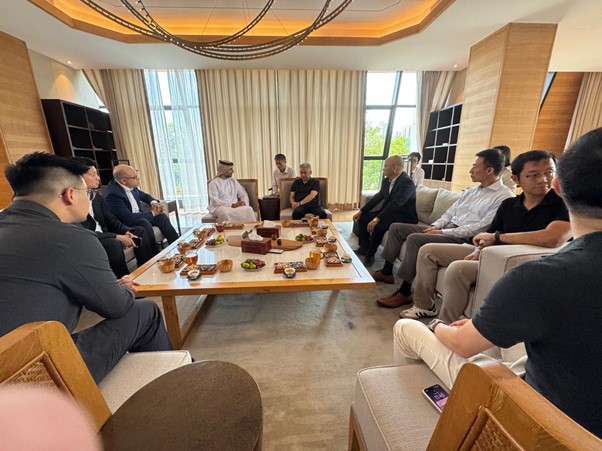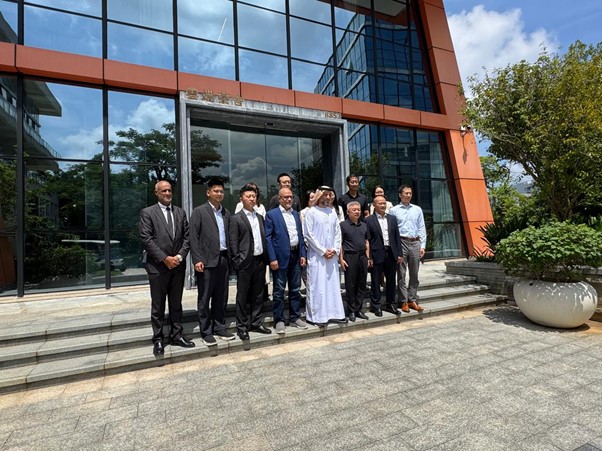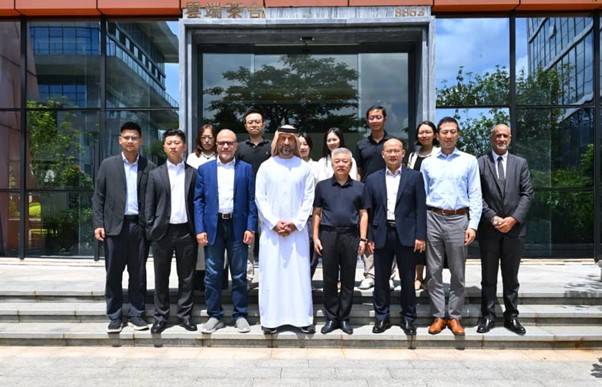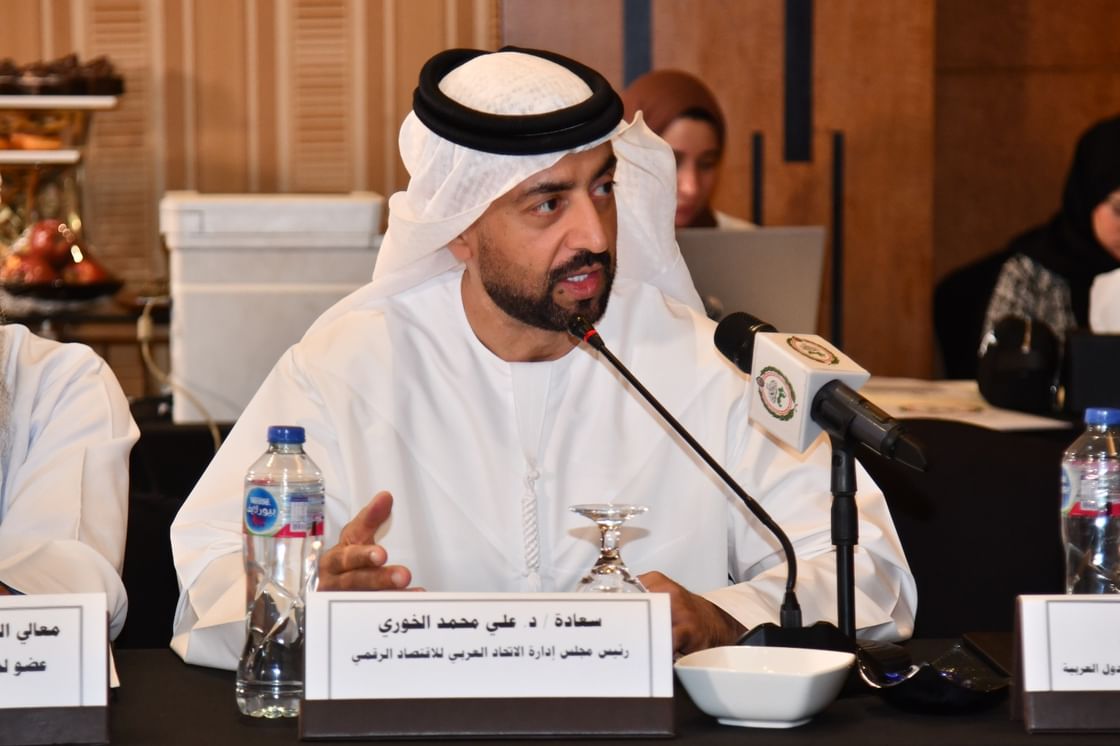Hainan – China
An official delegation from the Arab Federation for Digital Economy , led by H.E. Dr. Ali Mohammed Al Khouri, Advisor to the Arab Economic Unity Council and Chairman of AFDE, along with several senior Federation officials, conducted a field visit to the Chengmai Ecological Software Park in Hainan, People’s Republic of China. The visit was part of AFDE’s Asia tour aimed at deepening Arab–Chinese cooperation in technology and digital economy sectors.
Reviewing Infrastructure and Strategic Directions
During the visit, the delegation reviewed the park’s master plans and infrastructure development, touring business facilities, software buildings, and spaces designed as “mini-city” models that integrate work, residential, educational, and service environments within a green technology setting. The delegation also attended presentations covering key sectors within the park, including software development, digital services, blockchain, digital culture, and smart applications, as well as the preferential policies implemented within the Hainan Free Trade Zone.
Meeting with Park Leadership
The delegation held an official meeting with the park’s management, during which both sides discussed shared visions for expanding cooperation and exchanging expertise in the software sector. Discussions also focused on enabling Arab companies to enter the Chengmai environment and benefit from the specialized support and guidance provided by the park.

Cooperation Prospects and Future Initiatives
H.E. Dr. Ali Mohammed Al Khouri expressed his appreciation for the park’s efforts in building an advanced and comprehensive technological environment, noting that the visit represents an important step toward establishing direct partnership channels between the two sides. He emphasized that the partnership would include integrating Arab companies into Chengmai’s innovation ecosystem, exchanging joint projects and research in emerging technologies, and leveraging the park’s regulatory and developmental experiences as a practical platform for advancing Arab digital expansion.
The park’s leadership welcomed the collaboration with AFDE, confirming that it remains open to foreign investors under the approved legal and regulatory frameworks, particularly in software and digital services, which form a key pillar of Hainan’s and China’s broader digital economy growth.
This visit represents a strategic extension of AFDE’s vision to build effective ties with China, opening broad horizons for joint partnerships. Given the park’s high-quality infrastructure, large concentration of companies, and advanced regulatory environment under the Hainan Free Trade Port, AFDE has promising opportunities to launch model Arab–Chinese projects capable of making a tangible impact on the Arab digital economy.
About Chengmai Software Park
Chengmai Software Park is one of China’s major digital hubs, hosting more than 9,200 companies operating in software and a wide range of digital services. Reports indicate that nearly 95% of the top 100 Chinese technology companies have a presence or direct operations within the park, making it a central environment for the country’s digital economy growth.
Since its establishment, the park has undergone remarkable development. Initially built on unused agricultural land, it has, in less than a decade, transformed into a fully integrated smart industrial park, offering modern infrastructure and advanced administrative services under a “one-stop” principle that allows companies to complete tax and social registration procedures within hours.
Economically, the park has achieved annual revenues exceeding 50 billion yuan in its early years of operation, with tax contributions exceeding 5 billion yuan, reflecting its growing role in driving Hainan’s economic development.
The park is located in Lao Qing Town within Chengmai County, inside the advanced industrial and experimental zone of the Hainan Free Trade Port, providing it with a strategic location and special regulatory privileges. Managed by the Hainan Ecological Software Park Group, it benefits from flexible policies including tax incentives and streamlined administrative procedures under the Free Trade Port reforms, making it an ideal platform for technology projects and startups.












